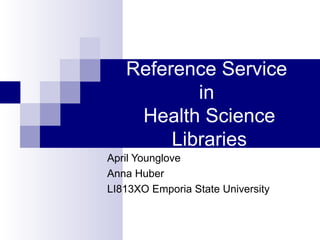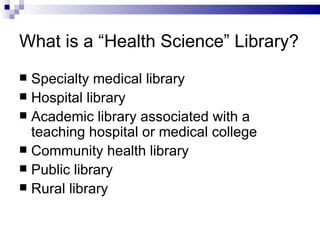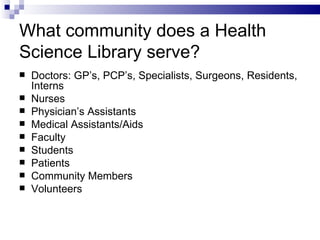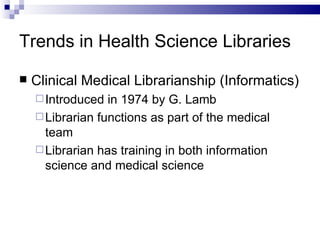Reference Services : Health Sciences
- 1. Reference Service in Health Science Libraries April Younglove Anna Huber LI813XO Emporia State University
- 2. What is a ŌĆ£Health ScienceŌĆØ Library? Specialty medical library Hospital library Academic library associated with a teaching hospital or medical college Community health library Public library Rural library
- 3. What community does a Health Science Library serve? Doctors: GPŌĆÖs, PCPŌĆÖs, Specialists, Surgeons, Residents, Interns Nurses PhysicianŌĆÖs Assistants Medical Assistants/Aids Faculty Students Patients Community Members Volunteers
- 4. Reference Issues in Health Science Libraries Privacy: HIPAA Safety/Legal: Errors may have fatal consequences Paraprofessionals: Academic vs. Hospital Time Technology: PDAŌĆÖs
- 5. Trends in Health Science Libraries Evidence based Medicine Defined as: practicing medicine from the perspective of applying current best evidence from clinical research Increased need for literature reviews and primary sources
- 6. Trends in Health Science Libraries Clinical Medical Librarianship (Informatics) Introduced in 1974 by G. Lamb Librarian functions as part of the medical team Librarian has training in both information science and medical science





